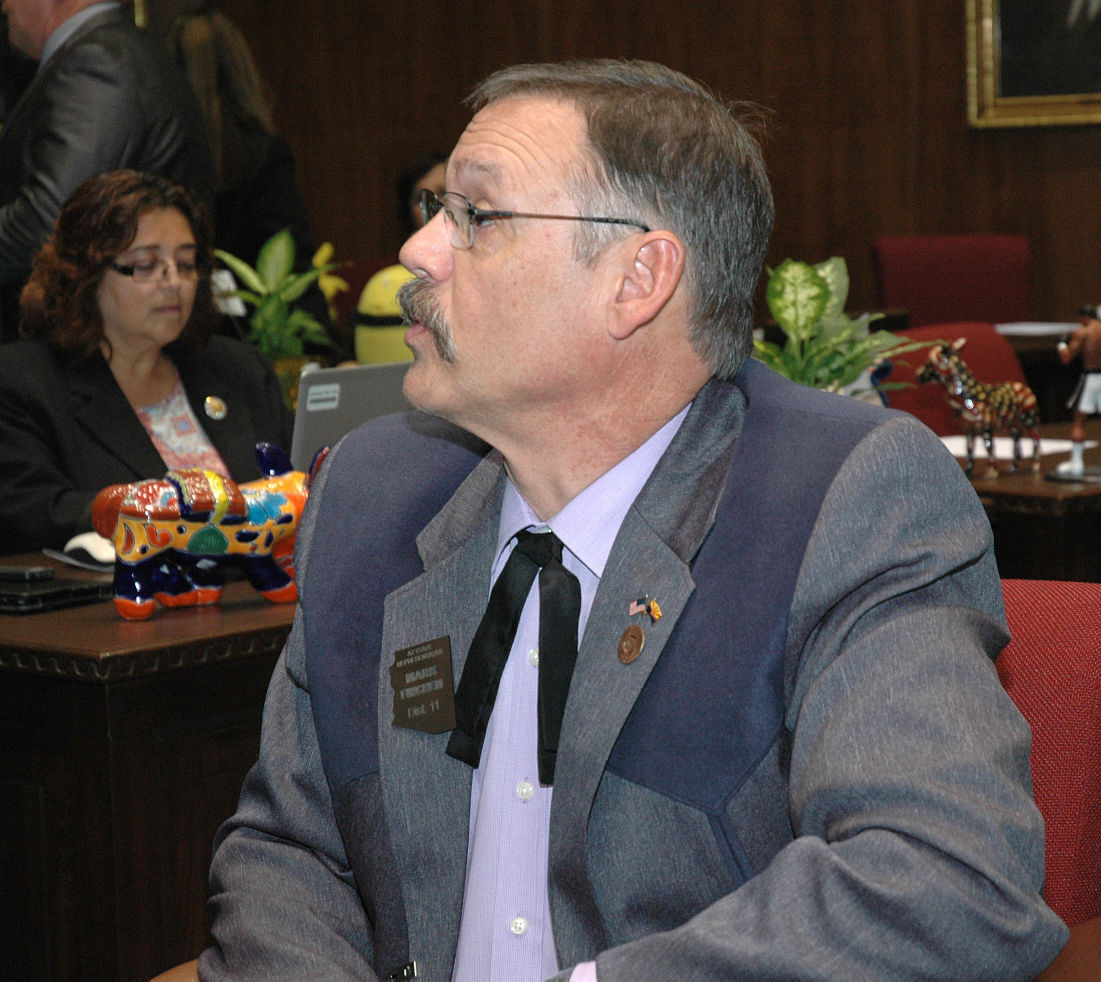PHOENIX — A first-term lawmaker is pushing legislation he contends will block at least two branches of the federal government from imposing their will on Arizona.
HB 2024 would forbid the state from using its resources to implement any presidential executive order unless it was approved by Congress and found to be constitutional. Rep. Mark Finchem, R-Oro Valley, said he crafted the bill even before President Obama announced Tuesday he is taking executive action to redefine who is a gun dealer and subject to requirements to do background checks.
A second section would apply the same standard to directives of federal agencies.
Those appear not to be much of a leap from Proposition 122, a state constitutional amendment approved in 2014 allowing the state to refuse to fund what it considers unconstitutional federal actions.
In fact, the U.S. Supreme Court, in a 1997 case involving Graham County Sheriff Richard Mack, ruled that even Congress could not force local government to use their resources to conduct background checks on gun buyers.
But HB 2024 also would extend the same language to decisions of the U.S. Supreme Court. Finchem said that, absent congressional action, there is no reason Arizona should have to do anything — or use state resources — to comply with court rulings.
Finchem told Capitol Media Services it’s wrong to even call what comes from the high court a “ruling.” And he derided the idea that the justices were creating “case law.”
“It’s not law at all,” he said.
“It’s case opinion and past practice, past application,” said Finchem, who got seven other Republicans to sign on as co-sponsors of the measure. And he said that it really is just the opinion of the majority of justices in a given case.
“The court can pass an opinion all day long,” he said. “But until that opinion goes back to Congress and becomes an enactment, and is signed into law, a statute, by the president, it’s not operable.”
Many high court rulings that involve specific disputes between individuals, businesses and even governments are unlikely to trigger what Finchem proposes. That’s because they do not require states to actually use any of their resources.
But there are cases where what the justices decide can have financial implications for state and local governments.
One ruling in that category is the justices’ decision that states cannot deny same-sex couples the right to wed. The net effect was to tell states that if they issue marriage licenses they must make them available to all couples regardless of sexual orientation.
Finchem said he sees no reason why the justices, on their own, can force that on states.
He said civil marriage is essentially a creation of the Internal Revenue Service on the premise the taxing agency needed to know who was entitled to certain benefits.
“If the federal government wants to issue a gay marriage license, they’re free to do that,” Finchem said. “But it’s not a state license.”
He said the federal government — and a federal court — cannot force the state to do something that is contrary to the state’s own constitution.





